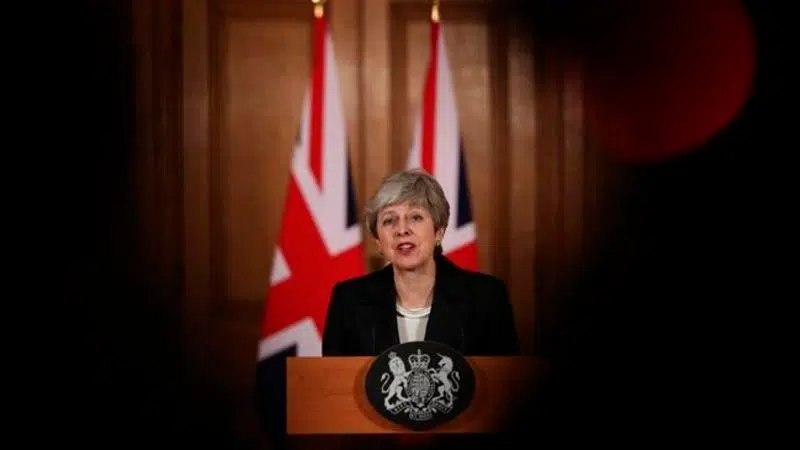
UK’s May asks a wary EU to delay Brexit until June 30
LONDON — Exactly 1,000 days after Britain voted to leave the European Union, and nine days before it is scheduled to walk out the door, Prime Minister Theresa May hit the pause button Wednesday, asking the bloc to postpone the U.K.’s departure until June 30.
EU leaders, who are exasperated by Britain’s Brexit melodrama, will only grant the extension if May can win the U.K. Parliament’s approval next week for her twice-rejected Brexit deal. Otherwise, the U.K. is facing a chaotic “no-deal” departure from the bloc within days, or a much longer delay that May says she will not allow while she is in power.
May, who has spent two and a half years trying to lead Britain out of the EU, said it was “a matter of great personal regret” that she had to seek a delay to Brexit.



